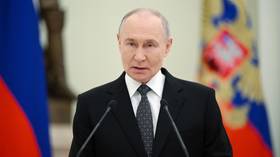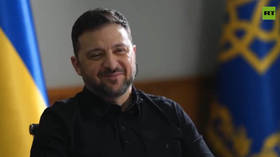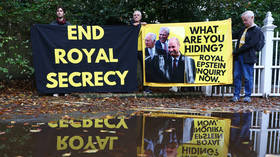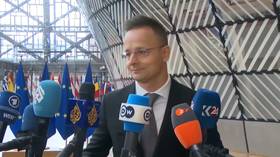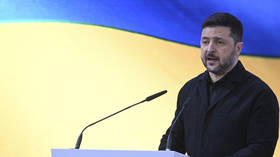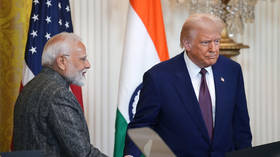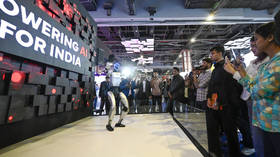Libya crisis ‘created by NATO intervention’ – scholar

NATO’s 2011 intervention created the devastation and chaos in Libya that enabled the rise of Islamic State militants and the current crisis surrounding the killing of 21 Egyptian Christians, an American scholar told RT.
The current situation is “precisely the consequence of the kind of war NATO waged in Libya, destroying the infrastructure, collapsing the state, and allowing a bunch of different militia groups to be treated as heroes,” said Vijay Prashad, a professor at Trinity College in Connecticut, and the author of “Arab Spring, Libyan Winter.”
According to Prashad, the intervention “created the situation where today there are two governments. And in that chaos, of course, what breeds most effectively is this group that calls itself the Islamic State.”
Militants proclaiming loyalty to the Islamic State (formerly ISIS) – a terror group laying claim to parts of Syria and Iraq – captured and beheaded 21 Egyptian Christians on Sunday. In response, the Egyptian air force bombed the eastern Libyan city of Derna on Monday. Egyptian president Abdel Fattah el-Sisi also called for a United Nations resolution mandating international intervention in Libya.
Following a February 2011 rebellion in eastern Libya, and a crackdown by the government, the United Nations adopted Resolution 1973, authorizing a no-fly zone in the country. NATO later expanded its operations to include direct air support to rebels, resulting in the overthrow of Muammar Gaddafi’s government in October 2011.
“The question of impunity has to be on the table,” Prashad said, noting that NATO’s lawyers responded to a UN request to have the intervention audited, as per UN rules, with a note saying that “NATO does not conduct human rights violations.”
“The level of impunity is quite egregious,” Prashad concluded.
READ MORE: Egypt President Sisi urges UN intl coalition to intervene in Libya
In the same way that the rise of the Islamic State in Iraq prompted calls for another US invasion, now the former head of British intelligence has started calling for renewed Western engagement in Libya.
“After Gaddafi was ousted, no one held the ring to help manage a transition to something better, as the US, Britain and other allies had done in Baghdad and Kabul,” Sir John Sawers said in a speech at King’s College, London on Monday. “Libya had no institutions. Who or what would take over?”
A strong US military presence in Iraq did not prevent the rise of the Islamic State, however, and the Taliban continue to reclaim Afghanistan from the Western-backed government.
READ MORE:Egyptian, Libyan airstrikes on ISIS targets in Libya after terrorists behead 21 Copts
“During the Syrian crisis, Libyan fighters were funneled from various parts of Eastern Libya, into Turkey, to cross the border into Syria and join the fight against the Assad government,” Prashad said. “There has been, with the complete connivance of Western intelligence, Gulf Arab intelligence, further radicalization of the youth from eastern Libya, and now this is plainly blowback.”
Some 200,000 Egyptian nationals are working in Libya, mostly in the oil industry. Prashad criticized the fact that instead of evacuating their nationals, the Egyptian government decided to send three jets to bomb Derna.
“I’m afraid nobody in the West understands the politics of North Africa,” he said. “There is no way that aerial bombardment, either by the Egyptians or by the West, is going to solve this problem. It is naïve to believe that.”


